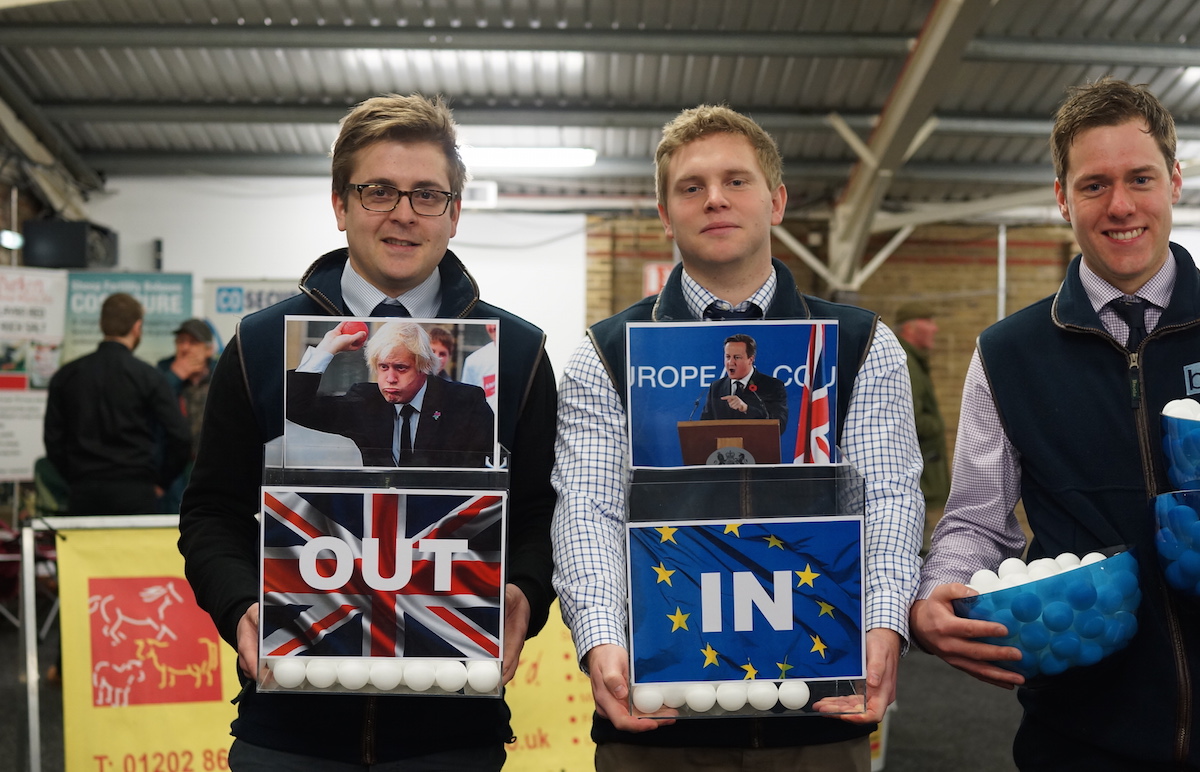Regular contributor and Worcestershire based Organic Arable and Sheep Farmer Melanie Steele considers what Brexit will mean for farming and makes a passionate case to remain in the EU..
Part of me just wants to say do I even have to explain? But clearly, those of us involved in farming who want to stay in the European Union, need to get our reasons sorted out. Here are some of mine.
So, first, why is it better for our farm?
This brings up straight away the question of making money through farming.
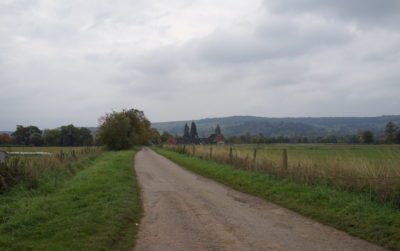
The bare economic truth for us is that the Common Agricultural Policy (CAP) has enabled us to carry on focusing our main efforts on agriculture. If we did not have the agricultural area payments prescribed by CAP then the risk of swings in agricultural commodity prices would no doubt have made us look harder at uses for the land other than farming it organically as we do .
If you know why, skip to the next -but -one paragraph. If you don’t then this is why.
Our agricultural products – grain and meat – are sold wholesale and the global market for these products creates a base for the prices. The unimaginably massive agricultural holdings around the world churning out monocultures of wheat, oats, barley pigs, cattle, chickens, soya, dairy etc, like Brave New World factories, tend to set the prices, with some input from speculation by commodity brokers. UK retailers follow these. Wholesale price swings are common but CAP cushions us from these when our sales are less than the cost of production.
CAP is obviously a cost to European taxpayers. Indeed, our own UK government usually complains about it every time it is reviewed at EU level. But I think it can be defended as it benefits all of us in the UK by supporting our capacity to produce our own food.
So my second reason for staying in is that the EU helps food security
Meaning the ability of a country to produce and store enough food for its population, should need arise. Most of us think that is pretty important. And the capacity to produce food is not just about the farmers themselves, but all the other skills and businesses associated with farming like agricultural machinery, biologists, animal experts, seed and grain suppliers, farm shops, and so on. Colin Tudge detailed all of this in Six Steps Back to the Land.* And home-grown food means less food miles, too.
My third reason is that I think remaining in the EU will be better for the countryside
We are organic, managing our own land plus some land that we farm for others, as do many farmers now, to spread costs. We farm all of this organically in a mixed system. Mixed essentially means animals and crops.
Here’s the landscape you tend to see through the year:
Spring – grass with sheep and new lambs and dairy heifers that we rear on the farm; seedling crops in the arable fields; bare soil awaiting late planting
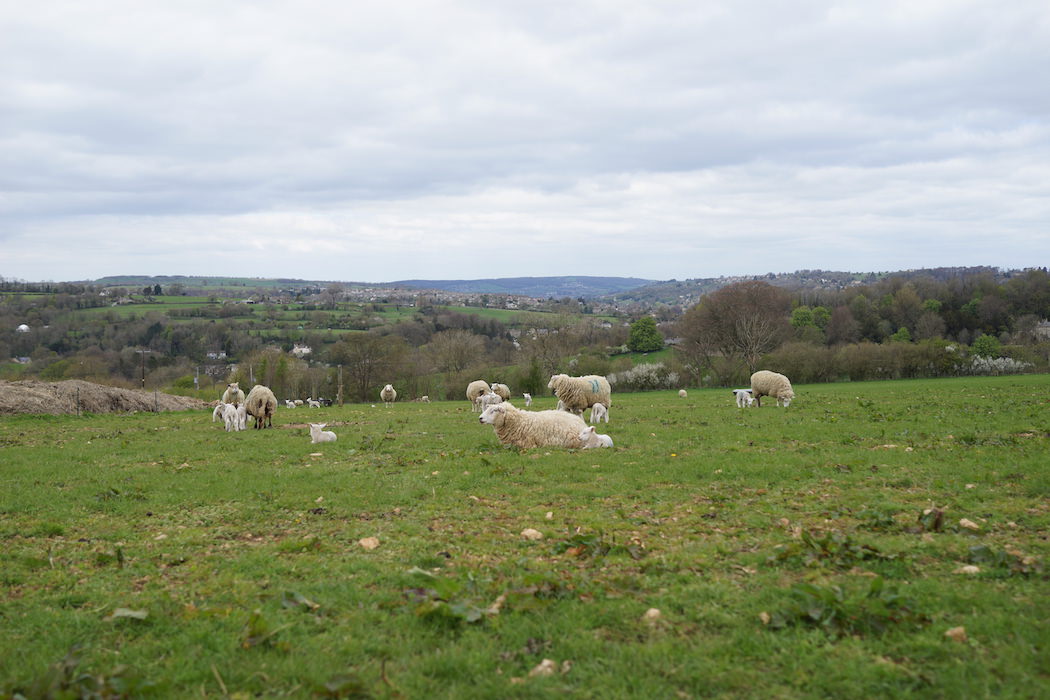
Summer – various arable crops ripening to gold; mature lambs; shorn sheep; fields shut up for hay full of seed heads and flowers; bales of straw and hay
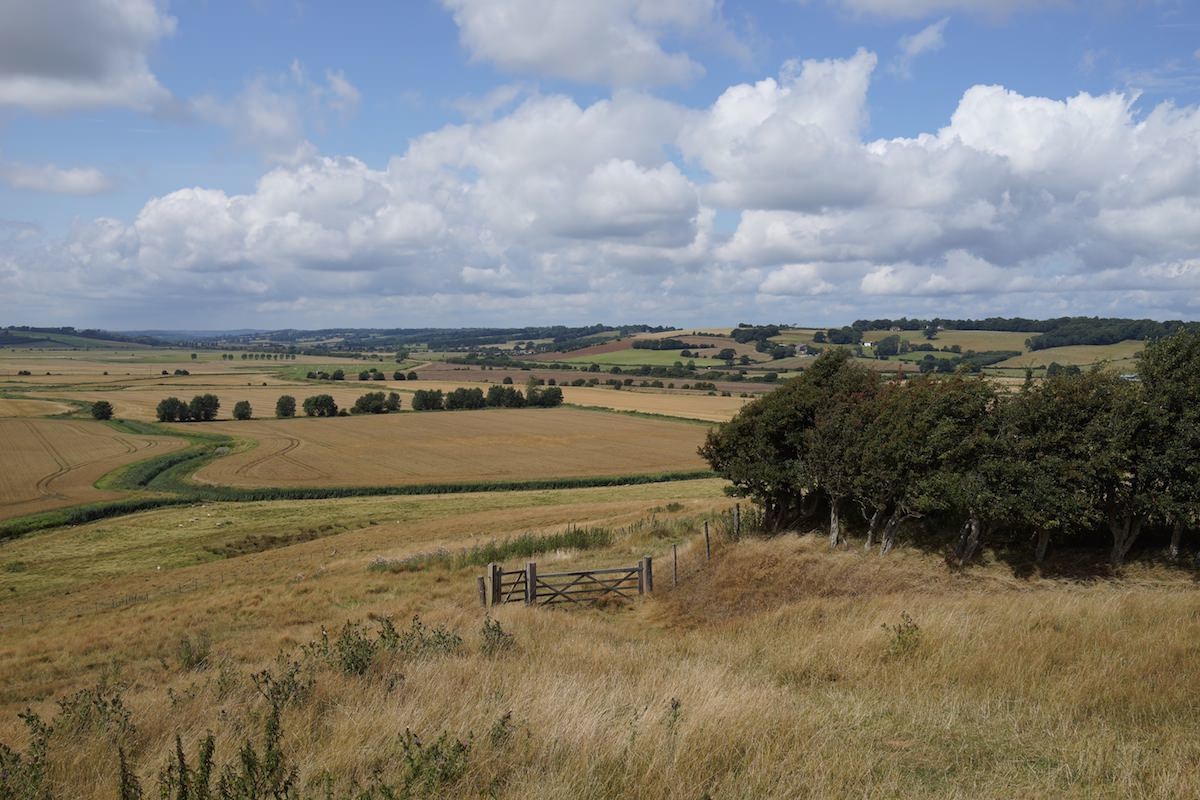
Autumn – stubble fields; new grass or grain shoots; bare brown soil awaiting early planting; rams out with the ewes
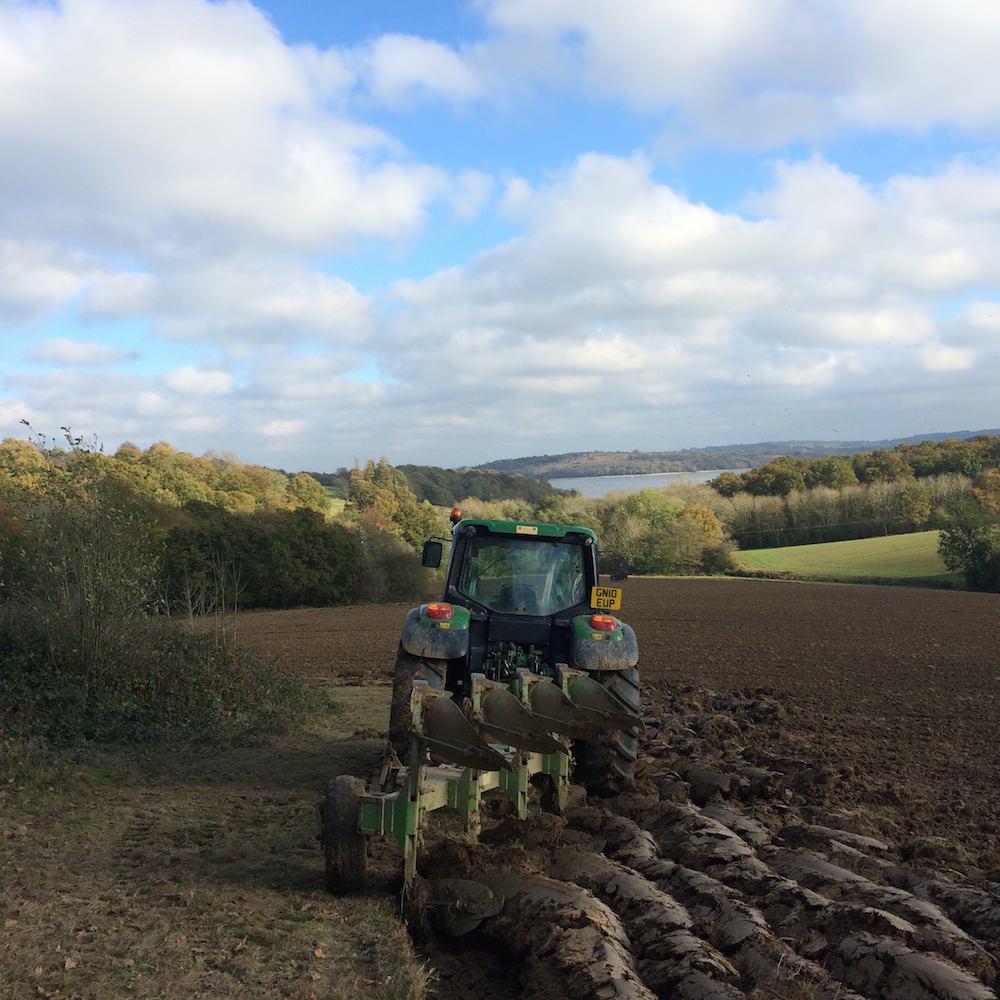
Winter – more bare fields; dormant grass fields; animals in barns
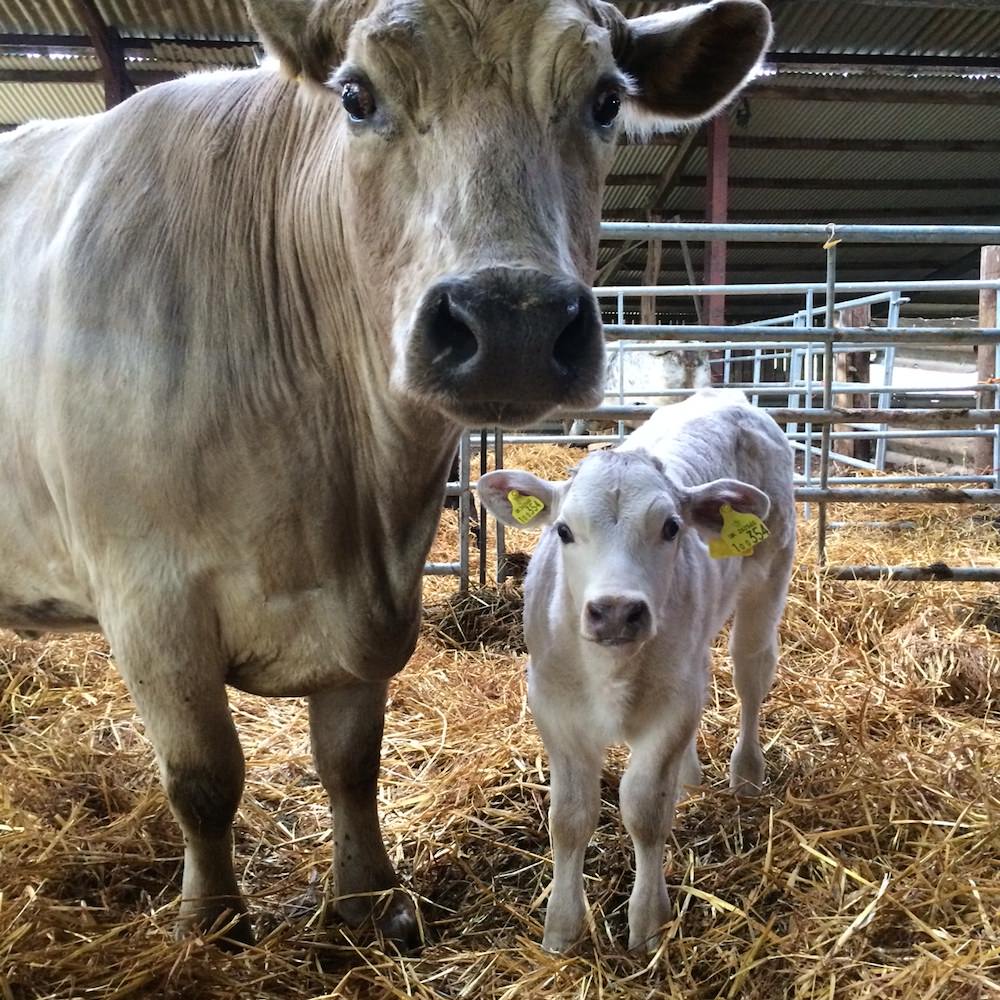
Year-round – hedges, trees, songbirds, corvids (crows etc), small mammals, wild flowers, birds of prey, deer, migratory birds, to name some of the wild things that thrive in the farming landscape.
All of us farmers of this sort of mixed holding, organic and conventional, rely more or less on CAP payments to help us keep on farming in this non-intensive way.
My fourth reason is that I think staying in the EU will benefit the environment
I have quite a few items on this list:
1. CAP indirectly (keeps less intensive farms going) and directly (it now has environmental conditions attached)
2. The European organic movement, which lobbies hard to safeguard organic standards. Will the UK’s Soil Association be forced into compromises if we leave the EU?
3. The EU gives strength to European farmers to resist pressures from “big farm” agriculture which views farming as an industry in which cheaper prices will justify just about any level of increased technology over jobs, and intensification of farming practice. The EU has stuck to its commitment to support ecologically minded farming. Would the UK government do so?
4. The EU wants to regulate “synthetic biology” (GM). It is pretty clear that the big international names in agriculture are investing in and thus controlling genetic processes. The EU has made it a mission to investigate the science and regulate the commercial interests. I trust the EU in this a whole lot more than our own government.
My final reason is the sense of community with other European farmers
Other European countries have more farmers as a percentage of their populations, and the farmers seem more united than us in the UK, and better at defending local food culture. As UK farmers are quite split on the question of US-style environmentally degrading intensive farming, from our perspective the link with European farmers feels positive and hopeful.
Summing up, this is my dystopian vision of what will happen to farming if we leave the EU
- The UK govt will stop paying subsidies and embrace TTIP. Its main loyalties are to big business, finance and its voters – who mostly want cheap prices and no restriction on food imports
- The intensification lobby in farming will gain huge traction
- Traditional low input farming businesses will find it very difficult to survive, so sightings of grassland with sheep and cattle will be rare as non-intensive farmers turn their land over to enterprises in which they think they can make money. Or give up…
- And there will be ever more and ever larger indoor dairies, sheds of indoor pigs, cattle or chickens and intensive horticulture under plastic. I know many UK voters care about animal welfare but many still seem to forget their principles when it comes to choosing which meat to buy
- I’m pretty sure there would be stiff lobbying for residential development of farm land
- Red tape? whilst some say getting out of the EU will get rid of red tape I don’t get it. Did the EU invent Ofsted? Did it come up with Red Tractor?* We’ll still be floundering in it.
* Six Steps Back to the Land reviewed by me in Indie Farmer ….
* Red Tractor, farm assurance scheme imposed by supermarkets …



